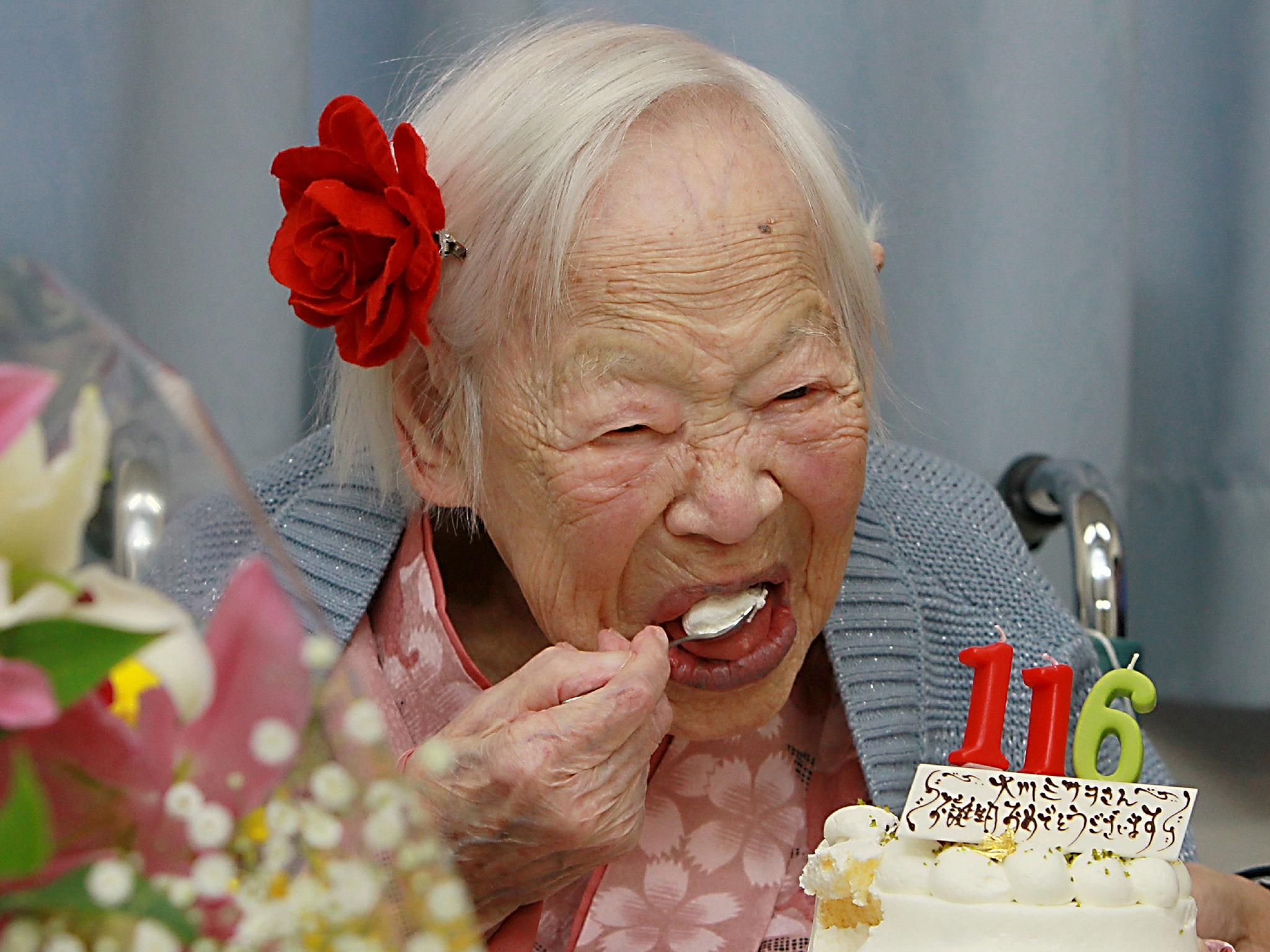How to live a long, happy life according to the world's oldest people
The tips vary from drinking beer daily to eating mainly sushi

Your support helps us to tell the story
From reproductive rights to climate change to Big Tech, The Independent is on the ground when the story is developing. Whether it's investigating the financials of Elon Musk's pro-Trump PAC or producing our latest documentary, 'The A Word', which shines a light on the American women fighting for reproductive rights, we know how important it is to parse out the facts from the messaging.
At such a critical moment in US history, we need reporters on the ground. Your donation allows us to keep sending journalists to speak to both sides of the story.
The Independent is trusted by Americans across the entire political spectrum. And unlike many other quality news outlets, we choose not to lock Americans out of our reporting and analysis with paywalls. We believe quality journalism should be available to everyone, paid for by those who can afford it.
Your support makes all the difference.For every person who swears that eating steamed vegetables and lean protein is the secret to a long life, there is another who claims that their grandma smokes 90 cigarettes a day and lived to be 100-years-old.
So, what exactly do the oldest people in the world do to stay alive for so long? But more importantly: happily and healthily.
Emma Morano from Verbania in northern Italy recently turned 117. She puts her long life down to eating two eggs a day, which she has done since she was diagnosed with anaemia aged 20 during World War I, as well as cookies, Mail Online reported.
Jessie Gallan, who at 109-years-old is the oldest woman in Scotland, says she has enjoyed a long life thanks to staying single, getting “plenty of exercise” and eating porridge every morning.
Gertrude Weaver, who died aged 116 in Camden, Arkansas, after claiming the title of the world’s oldest woman, pinned her longevity is “kindness.” She told Time magazine when she claimed her title to “treat people right and be nice to other people the way you want them to be nice to you.” However wishy-washy that sounds, research at the University of North Carolina suggests that positive thinking boosts a person’s health, while stress and negativity is detrimental.
Before Misao Okawa of Osaka Japan died aged 117 in 2015, she revealed to The Telegraph that eating sushi – specifically mackerel on vinegar-steamed rice - and sleeping for eight hours a night helped her live longer, as well as learning to relax. And in a blow to fitness-phobes, she was performed squats until she was 102 to keep her body in shape. (Sorry everyone).
So, although Agnes Fenton, an 110-year-old from New Jersey, swears by drinking three cans of beer and a shot of Scotch a day, it seems that, you guessed it, diet and exercise are key to living longer but also keeping stress levels low.
And we’re not complaining if that means chowing down on the world’s healthiest diets: Mediterranean, Japanese, Nordic, West African, and French.
Their varied lifestyles chime with research that suggests while exercising and eating high quality foods that aren't processed are a given for a person's well-being, our bodies react uniquely to different lifestyles.
That partly comes down to our digestive systems. In a recent interview with The Independent, Professor Tim Spector, a geneticist at King's College London, argued that counting calories to restrict how much we eat is counterproductive.
“We have about 100 trillion microbes inside our body in the lower intestine or colon and a microbe is anything you need a microscope to see. We generally talk about bacteria, but there are viruses and fungi too and they all contribute to our health.“
“We are all unique in our microbes, which explains why we respond differently to foods,” he said Professor Spector.
Join our commenting forum
Join thought-provoking conversations, follow other Independent readers and see their replies
Comments